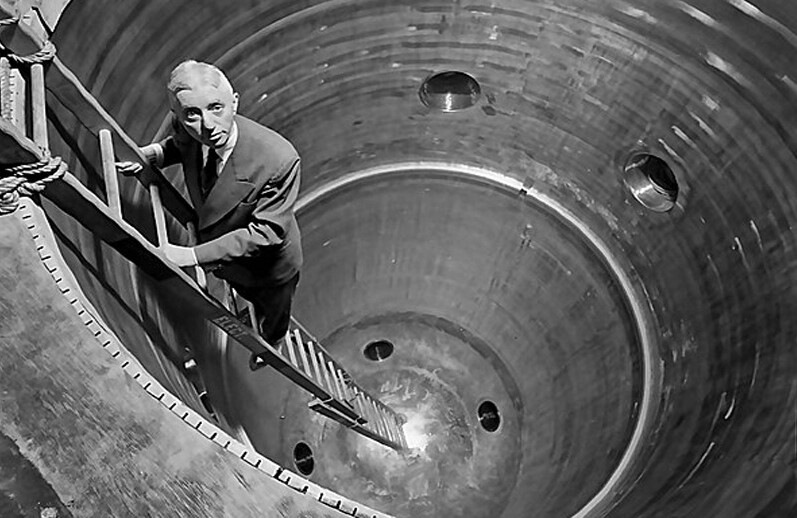Admiral Rickover (1900-1986), known as the Father of the Nuclear Navy, served for 63 years before retiring in January 1982, a few months before this talk. In 1946, he was assigned to the Atomic Energy Commission laboratory at Oak Ridge, Tennessee and, in early 1949, to the Division of Reactor Development, U.S. Atomic Energy Commission. As director of the Naval Reactors Branch, Admiral Rickover developed the world's first nuclear powered submarine, USS Nautilus (SSN 571), which went to sea in 1955. In the years that followed, he directed all aspects of building and operating the nuclear fleet.
Although he doesn't mention his career in his talk, the questions are largely about the military and also nuclear weapons. They include: "Could you comment on your own responsibility for helping create a nuclear navy? Do you have any regrets?"
Excerpt:
Voltaire once said, "Not to be occupied and not to exist are one and the same thing for a man." WIth those few words he captured the essence of a purpose in life: to work, to create, to excel, and to be concerned about the world and its affairs.
The question of what we can to give purpose and meaning to our lives has been debated for thousands of years by philosophers and common men. Yet today we seem further from the answer than before. Despite our great material wealth and high standard of living, people are groping for something that money cannot buy. As Walter Lippman said: "Our life, though it is full of things, is empty of the kind of purpose and effort that gives to life its flavor and meaning."
I do not claim to have a magic answer, but I believe there are some basic principles of existence, propounded by thinkers through the ages, which can guide us toward the goal of finding a purpose in life.
TO READ IN FULL, PLEASE DOWNLOAD THE ATTACHED PDF.




